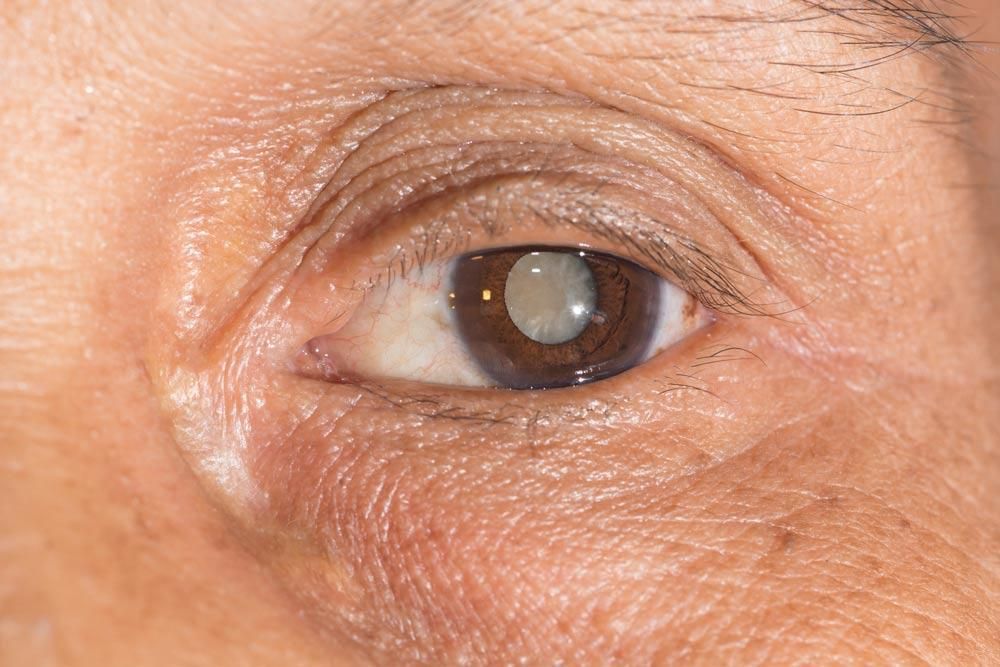

“EXCELLENT SURGEONS THAT ARE CARING PEOPLE, TOO!”
The Best for ICL Surgery in Tucson and Nearby Areas
Implantable Collamer Lens (ICL) surgery involves implanting a new prescription lens between your iris and your natural lens through a tiny incision. The new lens works in tandem with your natural lens to provide you with clear vision.
To ensure that you have the greatest chance of success, trust a qualified ophthalmologist who has performed this type of eye surgery before.
-
Fellowship Trained and Board Certified Refractive Surgeons
-
Customized LASIK & PRK Surgery
-
Implantable Collamer Lens
-
Refractive Lens Exchanges with Premium Lens Implants
-
Two Convenient Offices & a State-of-the-Art Surgery Center
If you’re in the Tucson and Oro Valley area, you will find an experienced eye surgeon at Fishkind, Bakewell, Maltzman & Hunter Eye Care and Surgery Center.
See What Makes Our Tucson Eye Care Specialists Different
Hear What Our Customers Say
The Process
ICL Eye Surgery in 4 Easy Steps
The ICL is implanted during a short surgical procedure, lasting approximately fifteen minutes. Although the procedure itself takes only a few minutes to complete, you should plan to spend a couple of hours at the center. Some of this time will be spent preparing you and your eyes for the procedure, while a few minutes will be required afterward for postoperative instructions and departure preparation.
Before the procedure begins, a nurse or technician will talk to you about any immediate health problems that may affect your readiness for the surgery. Drops are given to dilate the pupil. Anesthetic eye drops will be given to completely numb your eyes during the entire procedure. Then a surgical drape is placed over the face, and an eyelid separator is gently placed to keep the eye open.
Two small incisions are made at the edge of the cornea, and a thick liquid is instilled into the eye to protect the cornea, iris, and lens. All cutting is done by laser, with no sharp instruments ever touching the eye. Your eye is now ready for the placement of the implantable contact lens.
The ICL, which is made of a very soft and pliable material, is gently folded and inserted through a corneal incision. The lens opens inside the eye and is carefully manipulated into its final location just behind the iris and in front of the lens. The thick liquid is then removed from the eye and the pupil is brought back to normal size with medication.
When the procedure is complete, antibiotic drops will be given and your surgeon will cover your eye with a clear plastic shield. For a short time after the surgery, you will not have much sensation due to continued numbness. However, later in the day you may experience some light sensitivity and a scratchy or dry sensation as though you have dust in your eye. This usually resolves within a few hours. You should plan to have someone drive you home from your procedure, as you will most likely be given medication to help relax prior to surgery.
You will return to our office the following day for a postoperative examination. The flap will be checked to assure that it is healing properly. If present, the contact lens will be removed at this time. Vision at this time is usually between 20/20 and 20/40, depending on the degree of refractive error corrected. Vision may continue to improve over the next few weeks before stabilizing fully. At this point you should be able to go about your business as usual… with one exception- no more glasses or contact lenses!

What Are the Benefits of ICL?
Also known as the implantable contact lens, the Visian ICL® is a thin, prescription lens that is surgically inserted into the eye to correct a very wide range of myopia or nearsightedness, and may be an option for patients who are outside the treatment range of LASIK.
Patients with thin corneas or significant dry eye problems may also be more suited to the ICL than to LASIK.
The ICL is a permanent implant, capable of remaining within the eye for a lifetime.
Visit the Staar Surgical Visian website or below to watch videos related to this procedure.
How to Choose A Good ICL Eye Surgeon
As with all surgical procedures, you should thoroughly research your options to find the best surgeon for you. First, check to see if your routine vision insurance plan provides a discount with your surgeon or the facility. Second, verify that your surgeon is local to your area and will be available for your post-operative care.
Find a facility that has high-quality equipment and experienced surgeons and staff. Also, carefully research the experience of the eye surgeons you have under consideration. Find one who has a good rate of success over a long history of performing eye surgeries.

Meet Our ICL Surgeons
See Now – Pay Later! Finance Your ICL Procedure with CareCredit!

Why Our Facility Is a Great Eye Care Center for Your Eye Surgery
We know that you have a choice of several surgeons and locations for your ICL surgery and our team of experts look forward to providing the highest quality care to ensure the success of your ICL procedure. Our experienced surgeons, high-tech equipment, and personalized care provide you with the best outcomes for your vision. Your ICL procedure also includes a year of follow up exams to ensure you maintain your best possible vision.
FAQ
ICL Eye Surgery Questions & Answers
Prior to being placed on the market, Visian ICL was subject to extensive research and development. Today, more than 1,000,000 lenses have been implanted worldwide. ICL surgery is a safe procedure, but like all surgical or medical procedures, there is always a risk of complication. But risks and complications after ICL are rare and often only minor if they occur. Overall, ICL is considered a safe and effective means of correcting refractive errors and improving your vision.
If you’re interested in ICL, talk to your eye doctor about the qualifications. If you come to us, our ophthalmologists will review your medical history and conduct a comprehensive eye exam to evaluate your eye health and visual acuity to see if you would be a good candidate for this procedure.
In general, to be eligible for ICL surgery, you must be at least 21 years of age, have good eye health, have a stable eye prescription for one year prior to surgery, and have no medical conditions requiring medications that can interfere with your healing. Thin corneas or significant dry eyes do not automatically disqualify candidates. ICL Surgery should not be performed on pregnant or nursing women due to hormone fluctuations that affect their vision. ICL is not preferred if you have a history of eye disease such as iritis, glaucoma, or diabetic retinopathy
No. Your eye surgeon will put anesthetic drops in your eyes prior to your procedure to ensure you feel no pain. If you feel discomfort after the procedure, we can prescribe drops to minimize your discomfort and expedite your healing. Most patients feel fine within a few days.
We cannot guarantee every patient will attain 20/20 vision after ICL surgery. ICL surgery is a permanent correction or reduction of your nearsightedness and treatment of astigmatism allowing you to see clearly at long distances without eyeglasses or contact lenses or reduce your dependence upon them. In addition to the improvement of your uncorrected vision (vision without eyeglasses or contact lenses), your best-corrected vision (best vision with contact lenses/eye glasses) may be improved.
The ICL is a permanent implant, capable of remaining within the eye for a lifetime. It is removable and fully “reversible,” easily taken out of the eye if necessary, such as if a cataract develops later in life. It cannot be seen within the eye.


